
Josefa Antón Botella
University of Alicante
Spain
EMBO Practical Course
EMBL is committed to sharing research advances and sustaining scientific interaction throughout the coronavirus pandemic. We are delighted to announce that the course is going virtual and invite you to join us online.
The course focuses on the highly interdisciplinary topic of metagenomics. During the course, participants will receive an overview of state-of-the-art genomic technologies and bioinformatic tools. A balanced approach of lectures and practical sessions will provide a general background and the latest advancements in the field as well as its relationship with other disciplines.
The course will start with training the participants about experimental design and the preparation of their own metagenomic libraries with soil or their (environmental) samples. The metagenomic DNA will be sequenced onsite using third generation sequencing technologies and subsequent data analysis. Thus, the students have a unique opportunity to work on the complete workflow from sample preparation to data analysis. This updated course version will also address cutting-edge single-cell microbial genomics during practical. Bioinformatics analysis is a key part of the course, where students will learn how to process data from raw sequences to the application of algorithms for analysing metagenomic datasets. Trainers will provide short lectures with follow-up hands-on exercises in order to have the participants learning and assessing their knowledge.
This course is aimed at advanced PhD students and post-doctoral researchers who are doing or planning to start research in the field of metagenomics.

University of Alicante
Spain

EMBL Heidelberg
Germany

Sorbonne University /INSERM
France
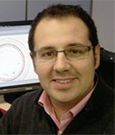
FISABIO Sequencing and Bioinformatics Service
Spain

Centro de Astrobiología (CSIC-INTA)
Spain

Tübingen University,
Germany

Georgia Institute of Technology
USA
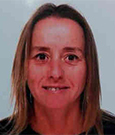
FISABIO
Spain

INRA-LISBP
France

EMBL Heidelberg
Germany
FISABIO Sequencing and Bioinformatics Service
Spain

EMBL Heidelberg
Germany

EMBL Heidelberg
Germany
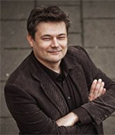
University of Zagreb
Croatia

Institute for Biological and Medical Engineering
Chile

EMBL Heidelberg
Germany

FISABIO Sequencing and Bioinformatics Service
Spain

Centro de Astrobiología (CSIC-INTA)
Spain

Course and Conference Team Lead
EMBL Heidelberg
Germany
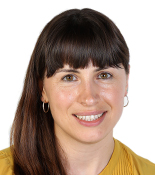
EMBL Heidelberg
Germany
Got something to say? Tweet it with #EMBOMetaG
The course will start on Monday 29 March, with an onboarding session and access to the pre-recorded lectures. It will continue on Monday 12 April with the regular programme.
The course will include interactive discussion sessions, online practicals, hands on exercises and networking.
Information on the live stream and access to the course platform will be provided shortly before the start of the event.
Access to the recorded talks will be available for 1 week after the start of the event.
Participants will be required to view the pre-recorded talks prior to the main start of the course on Monday 12 April. Full-time attendance is required for the course duration.
All times in the programme below are shown as the time in Europe (Berlin, Amsterdam Paris).
To find out the equivalent time zone in your location, enter Berlin, the programme date and time along with your city into the Time Zone Converter.
| Time (Europe/Berlin) | Session |
|---|---|
| 14:00 – 16:30 | Onboarding |
| Time (Europe/Berlin) | Speaker |
|---|---|
| 12:45 – 13:00 | Overview of the day |
| 13:00 – 13:15 | Welcome and house notes and course overview |
| 13:15 – 14:30 | Icebreaker activity |
| 14:30 – 14:45 | Break |
| 14:45 – 15:30 | Discussion Session based on pre-recorded talks Moderator: José Eduardo González Pastor – Center of Astrobiology (CSIC/INTA), Spain Karine Clement – Sorbonne University /INSERM, France José Eduardo González Pastor – Center of Astrobiology (CSIC/INTA), Spain Gabrielle Potocki-Veronese – INRA-LISBP, France |
| 15:30 – 16:00 | Break |
| 16:00 – 17:00 | Students Presentations |
| 17:00 – 18:00 | Optional social networking session |
| 18:00 | End of Day 1 – Continued access to networking and discussion platform, pre-recorded lectures and course materials on eCampus |
| Time (Europe/Berlin) | Speaker |
|---|---|
| 12:45 – 13:00 | Quick overview of the day |
| 13:00 – 13:45 | Practical session: Sample collection and metagenomic DNA isolation José Eduardo González Pastor – Center of Astrobiology (CSIC/INTA), Spain Arantxa Lopez – FISABIO, Spain |
| 13:45 – 14:00 | Break |
| 14:00 – 14:45 | Practical session: How to construct and perform functional screening of metagenomic libraries – potential pitfalls and critical steps (I) José Eduardo González Pastor – Center of Astrobiology (CSIC/INTA), Spain Arantxa Lopez – FISABIO, Spain |
| 14:45 – 15:15 | Networking break |
| 15:15 – 16:00 | Practical session: How to construct and perform functional screening of metagenomic libraries – potential pitfalls and critical steps (II) José Eduardo González Pastor – Center of Astrobiology (CSIC/INTA), Spain Arantxa Lopez – FISABIO, Spain |
| 16:00 – 16:15 | Break |
| 16:15 – 17:15 | Students Presentations |
| 17:20 | End of Day 2 – Continued access to networking and discussion platform, pre-recorded lectures and course materials on eCampus |
| Time (Europe/Berlin) | Speaker |
|---|---|
| 12:45 – 13:00 | Quick overview of the day |
| 13:00 – 13:30 | Tips and Tricks Metagenomics library preparation with Nanopore Jan Provaznik – EBML Heidelberg, Germany Nayara Trevisan Doimo de Azevedo – EBML Heidelberg, Germany Laura Villacorta, – EBML Heidelberg, Germany |
| 13:30 – 14:15 | Live Lab Practical: Loading of Flowcell and start of sequencing run José Eduardo González Pastor – Center of Astrobiology (CSIC/INTA), Spain Jan Provaznik – EBML Heidelberg, Germany |
| 14:15 – 14:45 | Break |
| 14:45 – 15:15 | Computational Practical session: 16S analysis of environmental samples using Nanopore sequencing technology José Eduardo González Pastor – Center of Astrobiology (CSIC/INTA), Spain Jan Provaznik – EBML Heidelberg, Germnay |
| 15:15 – 16:00 | Practical Session Kostas Konstantinidis – Georgia Institute of Technology, USA |
| 16:00 – 16:15 | Break |
| 16:15 – 16:40 | Practical session: Single cell microbial genomics with microfluidics Tobias Wenzel – Institute for Biological and Medical Engineering, Chile |
| 16:40 – 17:20 | Scientific discussion: Single cell microbial genomics Tobias Wenzel – Institute for Biological and Medical Engineering, Chile |
| 17:20 – 18:20 | Networking time (Pub quiz) |
| 17:20 | End of Day 3 – Continued access to networking and discussion platform, pre-recorded lectures and course materials on eCampus |
| Time (Europe/Berlin) | Speaker |
|---|---|
| 12:45 – 13:00 | Overview of the day |
| 13:00 – 13:45 | Discussion Session based on pre-recorded talks Moderator: Giuseppe D’Auria – FISABIO, Spain Josefa Antón Botella – University of Alicante, Spain Giuseppe D’Auria – FISABIO, Spain Kostas Konstantinidis – Georgia Institute of Technology, USA Georg Zeller – EMBL Heidelberg Germany |
| 13:45 – 14:45 | Data analysis Practical session: Approaching Linux Giuseppe D’Auria – FISABIO, SpainMariana Reyes Prieto – FISABIO, Spain |
| 14:45 – 15:00 | Break |
| 15:00 – 16:00 | Data analysis Practical session: Approaching Metataxonomy – QIIME2 Giuseppe D’Auria – FISABIO, Spain Mariana Reyes Prieto – FISABIO, Spain |
| 16:00 – 16:15 | Break |
| 16:15 – 17:15 | Data analysis Practical session: Approaching Metagenomics Giuseppe D’Auria – FISABIO, Spain Mariana Reyes Prieto – FISABIO, Spain |
| 17:15 – 17:30 | Break |
| 17:30 – 18:30 | Students Presentations |
| 18:30 | End of Day 4 – Continued access to networking and discussion platform, pre-recorded lectures and course materials on eCampus |
| Time (Europe/Berlin) | Speaker |
|---|---|
| 12:45 – 13:00 | Overview of the day |
| 13:00 – 13:45 | Panel discussion: from bench to computer – Critical steps in Metagenomic annalyis controlls, standards Moderator: Vladimir Benes – EMBL Heidelberg, Germany Giuseppe D’Auria – FISABIO, Spain José Eduardo González Pastor – Center of Astrobiology (CSIC/INTA), Spain Kostas Konstantinidis – Georgia Institute of Technology, USA Tobias Wenzel – Institute for Biological and Medical Engineering, Chile |
| 13:45 – 14:45 | Metagenomic analysis tools -INCA, MILC, MELP Kristian Vlahovicek – University of Zagreb, Croatia |
| 14:45 – 15:00 | Break |
| 15:00 – 16:00 | Practical: MEGAN Daniel Huson – University of Tübingen, Germany |
| 16:00 – 16:15 | Break |
| 16:15 – 17:15 | Students Presentations |
| 17:15 – 18:00 | Networking activity |
| 18:00 | End of Day 5 – Continued access to networking and discussion platform, pre-recorded lectures and course materials on eCampus |
| Time (Europe/Berlin) | Speaker |
|---|---|
| 12:45 – 13:00 | Overview of the day |
| 13:00 – 14:45 | Interactive Session on Case Studies Giuseppe D’Auria – FISABIO, Spain José Eduardo González Pastor – Center of Astrobiology (CSIC/INTA), Spain Kostas Konstantinidis – Georgia Institute of Technology, USA Arantxa Lopez – FISABIO, Spain Jan Provaznik – EMBL Heidelberg, Germany Nayara Trevisan Doimo de Azevedo – EBML Heidelberg, Germany Laura Villacorta – EMBL Heidelberg, Germany Tobias Wenzel – Institute for Biological and Medical Engineering, Chile |
| 14:45 – 15:00 | Break |
| 15:00 – 15:45 | Interactive Session on Case Studies (Continuation) Giuseppe D’Auria – FISABIO, Spain José Eduardo González Pastor – Center of Astrobiology (CSIC/INTA), Spain Kostas Konstantinidis – Georgia Institute of Technology, USA Arantxa Lopez – FISABIO, Spain Jan Provaznik – EMBL Heidelberg, Germany Nayara Trevisan Doimo de Azevedo – EBML Heidelberg, Germany Laura Villacorta – EMBL Heidelberg, Germany Tobias Wenzel – Institute for Biological and Medical Engineering, Chile |
| 15:45 – 16:15 | Break |
| 16:15 – 16:50 | Discussion & Wrap-up |
| 16:50 – 17:00 | Summary of the course and virtual farewell |
| 17:00 | End of the course |
The results will be announced approximately 2-3 weeks after the application deadline.
Registration Fees (included admission, course materials, meals and coffee breaks):
| Academia | 125 Euro |
| PhD Student | 125 Euro |
| Industry | 225 Euro |
Interested to find more about our upcoming courses? Sign up for our events newsletter.
Follow us on Twitter @EMBLEvents or visit our Facebook page to stay up to date with all of our events!
Registration Fee Waivers
All academic and student registrants are invited to apply for a registration fee waiver, provided by the EMBL Advanced Training Centre Corporate Partnership Programme and EMBO. The registration fee waiver covers the registration sum that you have paid to attend the meeting. Conference participants are not required to pre-pay the registration fee to be selected for a fee waiver for a virtual meeting. If you have already paid the registration fee and are awarded a fee waiver, it will be reimbursed after the meeting. Course participants are required to pay the course fee in advance, which will then be reimbursed after the recipient has attended the course.
For participants and speakers with childcare responsibilities there is the possibility to apply for a grant, provided by the EMBL Advanced Training Centre Corporate Partnership Programme and EMBO, to offset childcare costs incurred when participating at a virtual event. Eligible costs include fees for a babysitter or childcare facility or travel costs for a care giver. Please note that priority will be given to early stage researchers. Costs will be reimbursed after the meeting only once a reimbursement form and original receipts have been received. In order to apply for this grant, you must be registered by the abstract submission deadline.
Applies to selected courses only. Availability will be indicated during the abstract or motivation letter submission process.
This grant covers costs related to your attendance to the course (registration, travel and accommodation costs). The grant is restricted to PhD students and postdocs who conduct basic biomedical research.
Whether you are eligible to apply for a travel grant, depends on when you received your university entrance qualification (e.g. Abitur, A-Levels, High School Diploma, Final State Examination):
– for PhD and MD students, as well as graduates, the university entrance qualification must not have been obtained more than 11 years ago at the time of the envisaged course
– for postdocs, the university entrance qualification must not have been obtained more than 13 years ago at the time of the envisaged course
Applications for financial assistance can be submitted via the submission portal* (for the submission of abstracts for conferences or the submission of motivation letters for courses) by completing the Financial Assistance Application Section (underneath the section for entering abstract/motivation letter information). The link to the portal can be found in the registration confirmation email that you will receive after registering for the conference or course.
For conferences, if you are not submitting an abstract, you can still apply for financial assistance in the submission portal by following the instructions here. Note that priority will be given to those submitting an abstract to present at the conference. In your application you will be asked to answer questions regarding your motivation for applying, and, for registration fee waivers, the reasons why your lab cannot fund your attendance and how your attendance will make a difference to your career. Application for financial support will not affect the outcome of your registration application.
*For some events, applications for Childcare Grants will still be done by email. Information about the grant will be sent out shortly after the abstract/motivation letter deadline. Please contact the event Conference Officer if you have any questions.
The scientific organisers will select the recipients of registration fee waivers during the abstract selection process for conferences and the participant selection process for courses. Results will be announced approximately 3 – 4 weeks before the event start date. Selection results do not impact your admission to the meeting. Registration fee waiver selection is based on your current work or study location, your motivation for applying, the reasons for needing financial support and the impact this event will have on your career. Childcare grants are allocated based on career stage, with priority given to early stage researchers.
A list of external funding opportunities can be found here, and information on attending a conference as an event reporter here.
For further information about financial assistance please refer to the FAQ page.
Event Supporters
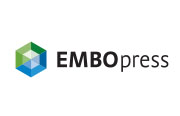
Event Sponsor
Sponsorship Opportunities
We offer a variety of event sponsoring possibilities, with the flexibility to select a set sponsorship package or combine individual sponsorship options to suit your event budget. Discounts are available for companies sponsoring multiple events at EMBL Heidelberg. View other conferences, or contact sponsorship@embl.de for further information.
If you are interested in becoming a media partner of this event, please visit our media partnerships webpage.
Below you will find the software and technical requirements for this course. You will need admin rights to be able to install the software on your computer and we recommend you try this before the course. If you do not have admin rights, please contact your technical support team in advance to make sure the software can be installed.
The EMBL eCampus learning platform will be used to collaborate, communicate and network with all of the course participants. All participants will receive information on how to join shortly before the course. We recommend using Chrome, Safari or Mozilla Firefox browsers for eCampus.
Zoom will be used for the live talks and Q&A sessions. More information will be provided closer to the start of the course
While using the software during the course, please make sure you have nothing else using your bandwidth. We recommend using a wired connection.
